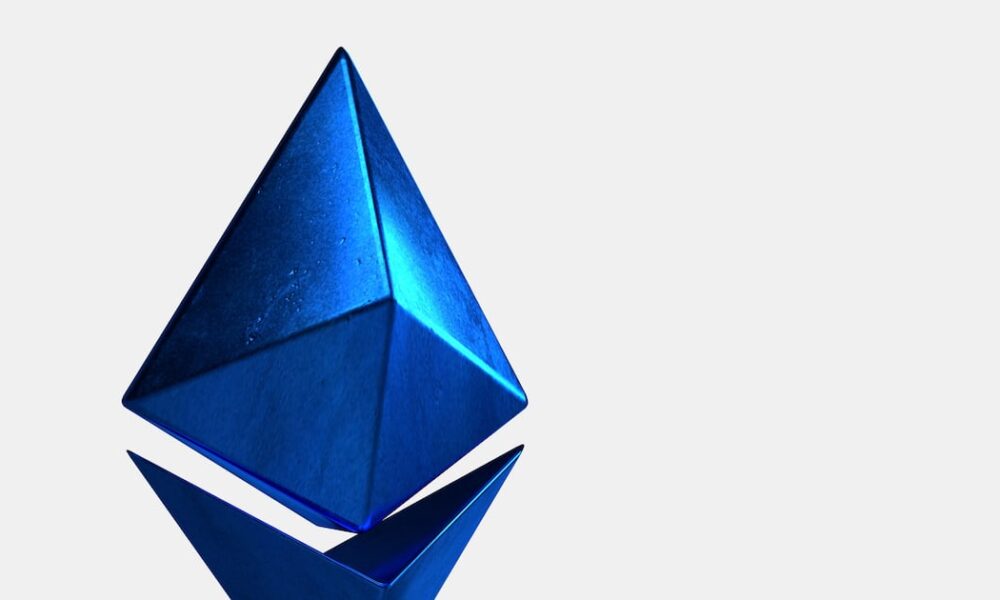Ethereum
Why Grayscale’s Fee for Its $10 Billion Ethereum ETF Is a ‘Non-Starter’ for Investors – DL News

- Grayscale Investments keeps its spot Ethereum ETF fee at 2.5%.
- This is 10 times more expensive than its competitors’ rates.
- The ETF will likely experience significant outflows when it launches.
The results are in: Grayscale Investments will continue to charge a 2.5% fee to holders of its Ethereum trust when it converts to an exchange-traded fund.
This is a huge sum compared to other potential Ethereum ETFs, which are everything is ready to be launched July 23.
“Grayscale is not cutting its fees at all,” said Eric Balchunas, ETF analyst at Bloomberg Intelligence. wrote on X, noting that the company’s ETF will be about 10 times more expensive than its competitors.
“This will probably cause some outrage,” Balchunas added.
By comparison, Ethereum ETFs issued by BlackRock and Fidelity Investments will each have a fee of 0.25%, VanEck and Bitwise will each charge 0.20%, and Franklin Templeton 0.19%.
Inputs and outputs
Grayscale’s case is unique in that it is not creating a new fund from scratch, but converting its existing Ethereum Trust – ticker ETHE, which holds nearly $10 billion in assets – into an ETF.
The fund was designed so that investors could create new shares, but not redeem them. Despite this, the fund was popular for a long time because it was one of the only ways for Wall Street investors to gain exposure to Ethereum.
And since it was the only game in town, Grayscale could get away with its 2.5% fee.
Join the community to receive our latest stories and updates
But once the trust converts to a fund (at the same time as all other Ethereum ETFs launch), investors will finally be able to redeem their shares.
And with more Ethereum ETFs launching soon, Grayscale is likely to see capital outflows from its fund to cheaper alternatives.
The same thing happened with spot Bitcoin ETFs: Grayscale has seen more than $18 billion in outflows since it converted its Bitcoin fund to an ETF in January.
BlackRock and Fidelity’s Bitcoin ETFs, meanwhile, have accumulated more than $30 billion in assets between them.
Grayscale did not respond to a request for comment.
High fees and no returns
Alongside the ETHE conversion, Grayscale is launching a separate Ethereum spot ETF, called the mini Ethereum ETF. The mini fund will carry lower fees (0.25%) and will be endowed with 10% of ETHE assets at launch.
The move “should help mitigate some of Grayscale’s likely outflows,” said James Seyffart, ETF analyst at Bloomberg Intelligence. published on X.
But not everyone is convinced.
“There is one major idiosyncratic factor with Ethereum that will affect demand and that is staking,” said Adam Morgan McCarthy, an analyst at Kaiko Research, a crypto data firm. DL News.
Using crypto infrastructure, Ethereum holders can lock their Ether into the network (a process called staking) to receive a 3% yield. But Ethereum ETFs won’t give holders that opportunity.
“The value proposition for a crypto-native fund holding ETHE is hard to see when those funds can redeem shares and buy Ether to stake in exchange for returns – instead of paying high fees to stay in Grayscale’s fund,” McCarthy said.
“Even paying 0.2% without the staking element seems like a non-starter to me,” he added.
McCarthy pointed out that since Ethereum enabled staking relatively recently, in 2022, some ETHE investors are likely still waiting to exit the fund and lock their Ether into staking protocols.
“Expect outflows from ETHE and some reallocation to new funds that are launching with waivers and low fees,” McCarthy said.
“But a good portion of the capital outflows will leave the market completely,” he added.
Tom Carreras is a markets correspondent at DL News. Got news on Grayscale ETFs and Ethereum? Contact us at tcarreras@dlnews.com
